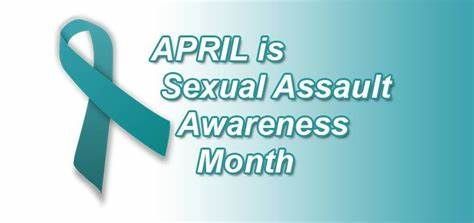Winter Turns into Spring - The Blog



In recent years, there seems to be more and more diagnosis of Borderline Personality Disorder (also called Emotionally Unstable Personality Disorder) particularly in young people. Anyone who display "difficult behaviour" is diagnosed with BPD. Sufferers are then labelled as toxic and unwilling to heal, adding more distress for them.

Back in 2014, I was diagnosed with BPD. At first, I felt relief to finally have a list of words describing my impulses and emotional turmoil. I was suicidal and overdosed a few times. I stole little things in shops. I was angry. I was obsessively pursuing my ex, despite the fact that he was abusive. For me, this rejection meant death.
The thing is, other labels are attached to BPD: toxic, manipulative, angry, violent, uncontrollable... It goes on and on. Just the titles, Borderline/ Emotionally Unstable Personality Disorder, are stigmatising! Unstable? Disorder? Let's have a look at the symptoms. Mind writes, if you are suffering with BPD, you may:
- feel very worried about people abandoning you, and either do anything to stop that happening or push them away
- have very intense emotions that can change quickly (for example, from feeling very happy and confident in the morning to feeling low and sad in the afternoon)
- not have a strong sense of who you are or what you want from life, with your ideas about this changing significantly depending on who you're with
- find it very hard to make and keep stable relationships or friendships
- act impulsively and do things that could harm you (such as binge eating, using drugs or driving dangerously)
- have suicidal thoughts
- self-harm
- feel empty and lonely a lot of the time
- get very angry, and struggle to control your anger
- struggle to trust other people
- experience other mental health problems alongside BPD, including anxiety, depression, eating problems and post-traumatic stress disorder.
When very stressed, sometimes you might:
- feel paranoid
- have psychotic experiences, such as seeing or hearing things that other people don't
- feel numb or 'checked out' and not remember things very well after they've happened (known as dissociation)
Mind adds, on its website the reasons why the diagnoses of BPD is controversial.
"The term itself can be stigmatising,"
The lists above describes natural responses to highly stressful to traumatic events. They describe a nervous system that has been put under so much pressure, to survive whatever happened, that it cannot behave "appropriately" People aren't difficult, crazy, childish, behaving as victims: they are suffering! They feel lost and ashamed of their impulses, and then, when they need support the most, they are blamed for things they have very little control over.
"The stigma of being violent and dangerous is the worst for me. I am a caring and empathetic soul who would do anything for the people I love."
Anger is a natural response to being deeply hurt! As for the alleged violence, most hurt themselves more than they hurt others. Of course, violent/ unhealthy behaviour, if it happens needs to be addressed, but we can't shame people into recovery.
It doesn't take social context into enough account:
People are complicated. There are many social factors that can affect our capacity to cope, to relate to others and to respond to stress. For example:
- Experiencing trauma in childhood (such as abuse or neglect), or trauma that lasted for a long time.
- Issues to do with your situation and environment, such as poverty and social deprivation, or having to move home to a totally new place or culture.
- Experiencing stigma and discrimination, like racism, sexism, homophobia, biphobia or transphobia.
- If people have treated you badly in past relationships (including your parents or carers).
Instead of focussing on "What is wrong with them." The question needs to be: "What happened to them? How can we help?" BPD isn't the cause: child abuse (or any other source of trauma and stress) is very often the cause! BPD is the effect.
Popular treatment for BPD are CBT/ MBT or Schema therapy. Those approaches only focus on the behaviour displayed and on correcting it. In other words, they only scratch the tip of the real issues: trauma and/ or stress. Behaviour can't truly be changed without revisiting the past events that trigger it. It is, at first, helpful and necessary to talk about abusive/ stressful events. They need to be released out. The step that seems to be missing though is the "feeling" step. We are intellectual beings, curious creatures but, feeling our deepest pain is terrifying! We need a caring witness to support us through this.
A lot of teenagers are diagnosed with BPD. Being a teenager is already difficult: the brain is re-wiring itself and hormones kick in. It is a time of change and change is scary. Young people are called irresponsible and stupid most of the time. Parents and society put them under so much pressure to achieve, to be popular, to plan their entire life out. Their sufferings are minimized constantly: "Oh, s/he is a teenager!!" Some don't have anyone to turn to: being abused at home AND bullied in school. (This is be a topic for another article.)
Adults, they are accused of being childish. As grown-ups, they should know better than letting their emotions take over! A lot of therapists assumed that patients have control over their mind. They don't always do: the behaviour and thought processes they are experiencing are emotional flashbacks! These are Inner Parts (Inner children) still trying to survive stressful and/ or abusive situation the best they can. These little inner people need validation, love, compassion and kindness, then, nobody will have to train them into thinking and behaving differently: they will naturally change/ evolve.
Later, as I felt better, thanks to the help of friends I have met during MBT group therapy, and as a result of my own intensive research, and then finding the right therapist, I rejected this diagnosis. As I read more and more about C-PTSD, I noticed this explained my experience better, as it clearly states the link to severe, ongoing childhood abuse. What really helped me was Mindful Self-Compassion, pioneered by Dr Kristin Neff, Ph.D. and her colleague, Dr Chris Germer, Ph. D. Of course, finding a trauma informed* therapist who will support you with compassion and kindness, is a plus. There is a real need for person centred and compassionate therapies, that are available and affordable for all!
Any thoughts and experienced you'd like to share?
Love and Light,
Sylvie
*What does "trauma informed" means. Here is another overused term! NAPAC explains it as follows:
"The key goal of trauma-informed practice is to raise awareness among all staff about the wide impact of trauma and to prevent the re-traumatisation of clients in service settings that are meant to support and assist healing." A trauma informed therapist acknowledges clients' suffering is a result of stressful and/ or abusive past events and relationships. They are here to support the client through flashbacks and over impacts of child abuse and neglect.



